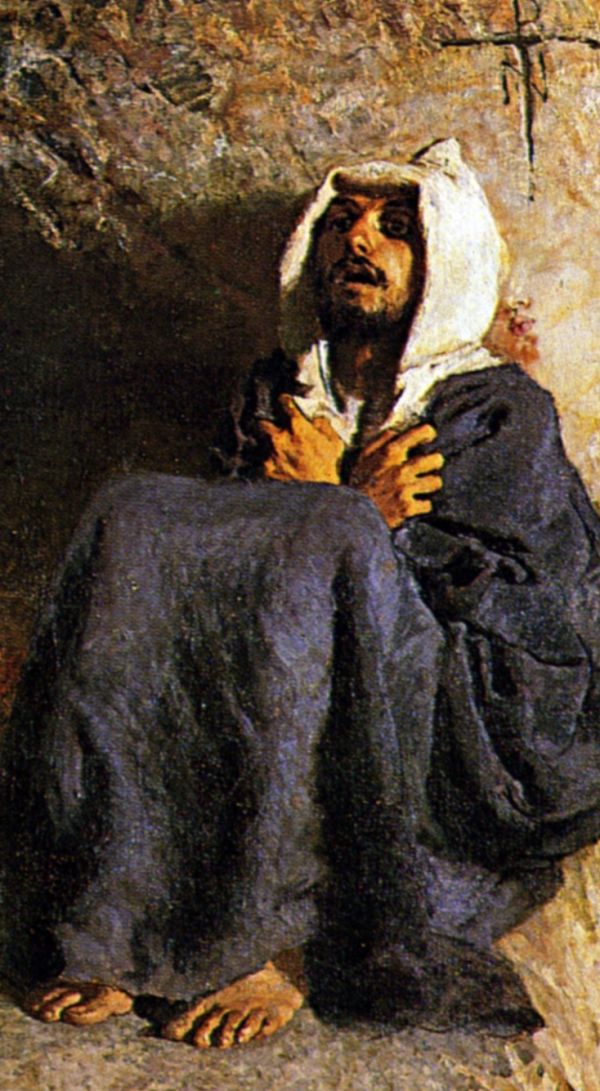Faith, Temptations: our success
(Mt 4:1-11 Mc 1:12-15 Lc 4:1-13)
Only the man of God is tempted.
In the Bible, temptation is not a kind of danger or seduction for death, but an opportunity for life.
Even more: a relaunch from the usual laces.
When existence runs off without jolts, here is instead the ‘earthquake of flattery’... a trial that puts back in the balance.
Lenten spirituality.
In God's plan, the test of Faith doesn’t come to destroy minds and life, but to disturb the swampy reality of obligations contracted in the quiet of conformist etiquette.
In fact, in the labels we are not ourselves, but a role: here it’s impossible to seriously conform to Christ.
Every danger comes for a healthy jolt, of image too - and to move us.
The exodus stimulates us to take a leap forward; not to bury existence in the anthology of uncritical mechanisms under conditions.
The passage is narrow and it’s also obligatory; hurts. But it spurs so that we can meet again ourselves, our brothers and the world.
Providence presses: it’s educating us to look both every detail and the fundamental option in face.
To get out of dangers, ‘seductions’ or disturbances, we are obliged to look inside and bring out all the resources, even those unknown (or to which we have not granted credit).
The difficulty and the crisis force us to find solutions, give space to the neglected and shaded sides; see well, ask for help; get informed, enter into a qualitative relationship and compare ourselves.
Of necessity, virtue: after attraction and enticement or trial, the renewed point of view, reaffirmed by a new evaluation, questions the soul about the calibre of choices and our own infirmities.
Unsteady situations themselves have something to tell us: they come from the deepest layers of being, which we must encounter - and they take the form of mouldable energies, to invest.
The Calls to revolutionize opinions of oneself and of things - vocations to a ‘new birth’ - are not incitements for the worst, nor spiritual humiliations.
The "crosses" and even the dazzles are a territory of pain that leads to intimate contact with our Source, which re-arouses us from time to time.
The man who is always listening to his own Core and remains faithful to the singular dignity and uniqueness of the Mission, however, must bear the pressures of a kind of evil that only instigates death.
Mt and Lk describe these (‘apparently friendly’, for success) enticements in three symbolic pictures:
the relationship with things [turning stones into bread]; with others [temptation of kingdoms]; with God [Trust in the Father's Action].
In the Holy Scriptures a curious fact emerges: spiritually weak people are never tempted! And the other way around is also true.
It’s the way of living and internalizing the lightning bolt or the time of Temptation that distinguishes Faith from the banality of devotion any.
[1st Sunday in Lent, March 9, 2025]












